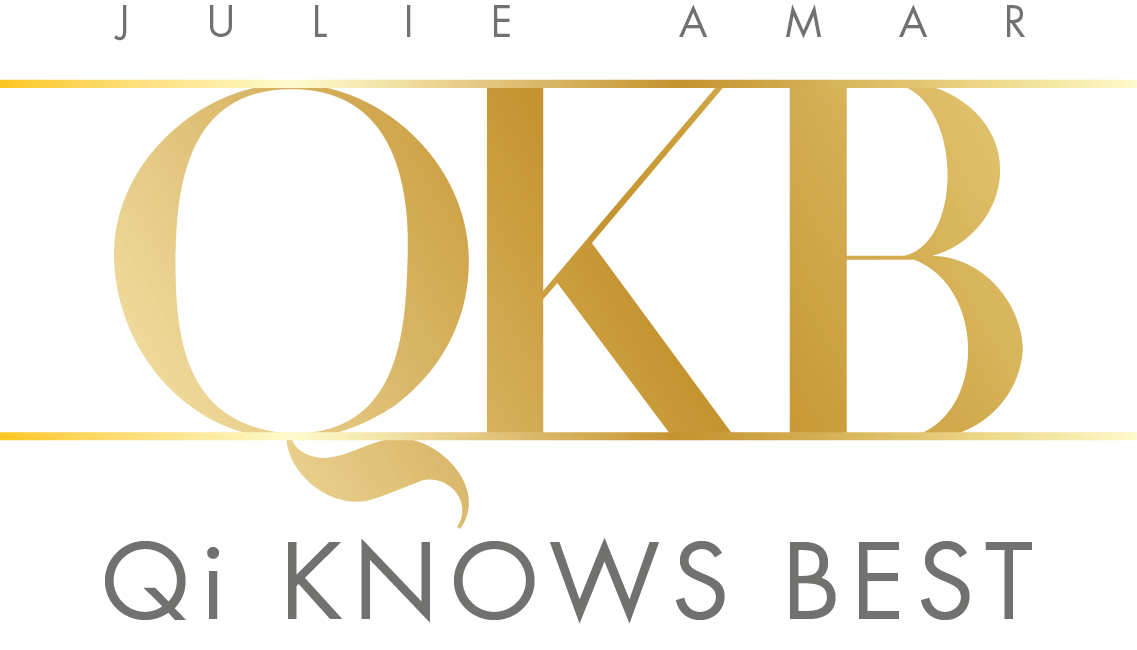Sleep and Your Qi
‘Tis the season of overwork (to finish all those projects before the holidays), over-stress (because of all those family obligations) and over-partying (because it’s celebration time!). With all this overtaxing of our system, what do we need most? Sleep! And what do we tend to skimp on? You guessed it... sleep!
Today I’m going to do a deep dive into the body’s energy cycles to help you see the wide-ranging effects that lack of sleep can have on your Qi, your body and your emotions.
The Chinese medicine “organ clock” helps us understand the health impacts of sleep.
By observing the natural cycles of both environment and the body, early Traditional Chinese Medicine (TCM) practitioners learned how to help the body and mind have a continuous flow of Qi energy in a way that’s harmonious with their needs. These early practitioners developed an “organ clock” to help healers know which organ system needs attention and healing. This “organ clock” explains how the time of day relates to the body and its meridian system.
Essentially, what happens at different times of your sleep cycle can give us clues about what’s going on with your overall health. Qi moves through the body’s meridians and organs in a 24-hour cycle. In every two-hour period, the Qi is strongest within a particular organ and its functions within the body.
So, for example, if you always wake up at a certain time, you can check the clock, explained below, to see which organ system is associated with that time frame, and understand its corresponding emotion. This in turn indicates which meridian system requires attention and rebalance to coordinate your Qi back to a regular flow.
Different organs gear up at different times of the day.
This chart shows how the cycle works!
Based on this chart, your Chinese medicine practitioner may be able to help you understand the impact if you consistently wake up at a specific time in the middle of the night. It’s part of our diagnostic analysis, meaning part of how we figure out where and why your Qi is disrupted.
For instance, if you wake up at 3 a.m., when liver Qi is at a peak, it’s often a result of liver Qi stagnation, which relates to an unhealthy diet, toxicity, excess alcohol intake, unresolved anger or high levels of stress. If you consistently wake up at 4 a.m., it’s likely a result of lung Qi imbalance, which is related to grief, sadness, fatigue or reduced immunity.
Did I mention that the body, mind and emotions are inseparable in TCM?
If you have an imbalance in your physical body, it’s tied to your emotional state, and vice versa.
For example, when a new injury occurs and creates excruciating pain, the emotions produced are anger, frustration and irritability. This signifies a disruption in the liver Qi. The more anger and frustration the pain generates, the more this emotion feeds the liver Qi fire; excessive liver fire in turn promotes more pain. When we work to relieve the pain, the liver Qi calms down and the emotions return to normal.
The other end of this occurs when you are exposed to an emotion for a prolonged period of time, and it creates a physical blockage. For example, when the emotions of sadness, grief and sorrow are predominant, they affect the lung Qi. This is draining and weakening for the lungs and often leads to respiratory issues, immune weakness, loss of voice and skin irritation. And because the meridian of the lungs moves into the shoulders, it’s common to see pain or weakness arise in the shoulder joint, such as frozen shoulder (adhesive capsulitis).
In short, it’s all connected!
Remember, winding down is just as important as actually sleeping.
Understandably, we believe that having a good night’s sleep to prepare for the next day is the most important thing. But it’s just as important that we use the second half of the day to slow down our yang energy and activate yin. The first half of the day is for yang rising activity; this is when you should do your most physically and mentally demanding work. In the second half of the day, we need to chill out so that our yin can build for a good sleep. That means...
• Stop answering work emails and get off of all screens by 8 p.m.
• Do no strenuous activity. This is not optimal gym time.
• Wind down by dimming the lights. Take a warm bath.
• Meditate or do some yin yoga.
These kinds of activities help build up the yin and lower the yang. If the yang remains high, our sleep will be restless and interrupted, and it won’t be the kind of restorative, deep rest we need to truly power up for the next day. Apart from an acupuncture treatment, sleep is the only time your body has for restoration, cellular turnover and Qi recovery. Take it seriously!
So this holiday season, make sure you get time to rest and recover. If you need an excuse to bow out of stressful holiday activities, I actually created a set of free cards you can download and send to people!
And all year round, practice good sleep hygiene as a key part of staying healthy, happy and emotionally balanced. Make deep, restful sleep your gift to yourself.
xo


